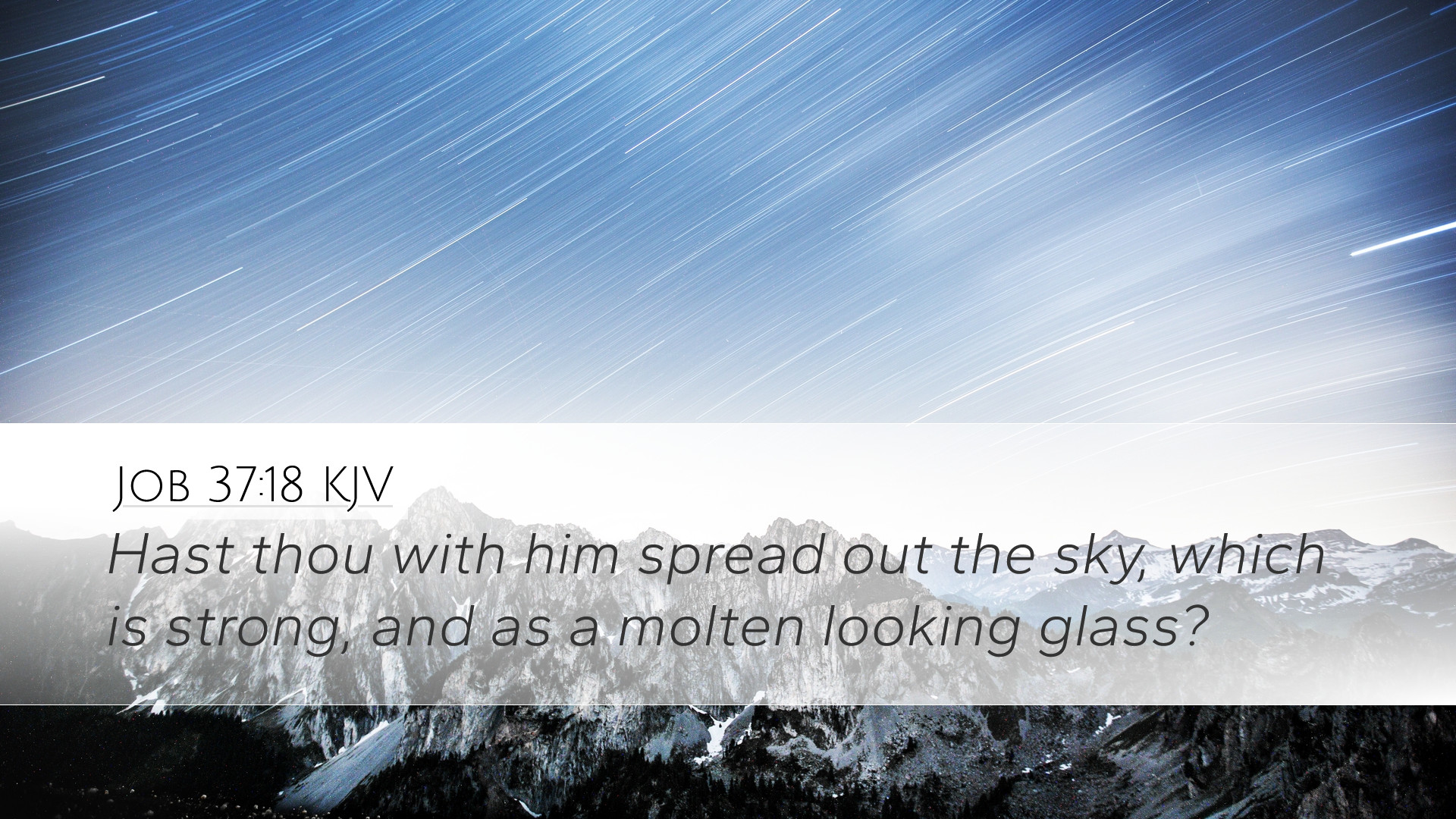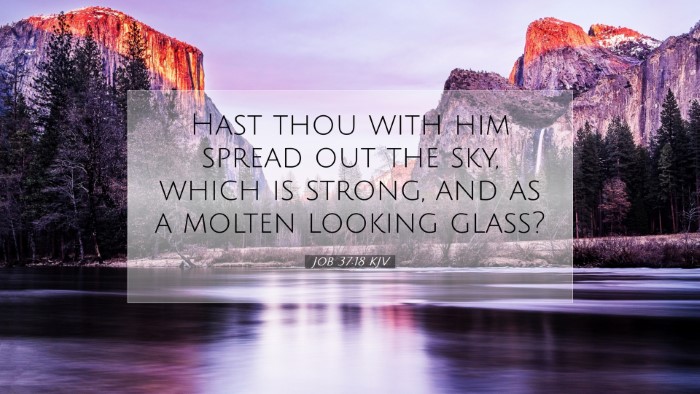Old Testament
Genesis Exodus Leviticus Numbers Deuteronomy Joshua Judges Ruth 1 Samuel 2 Samuel 1 Kings 2 Kings 1 Chronicles 2 Chronicles Ezra Nehemiah Esther Job Psalms Proverbs Ecclesiastes Song of Solomon Isaiah Jeremiah Lamentations Ezekiel Daniel Hosea Joel Amos Obadiah Jonah Micah Nahum Habakkuk Zephaniah Haggai Zechariah MalachiJob 37:18
Job 37:18 KJV
Hast thou with him spread out the sky, which is strong, and as a molten looking glass?
Job 37:18 Bible Commentary
Commentary on Job 37:18
Verse: Job 37:18 - "Hast thou with him spread out the sky, which is strong, and as a molten looking glass?"
Introduction
This verse is a part of Elihu’s discourse, in which he attempts to explain God's greatness and the awe-inspiring nature of creation. It serves as a reminder for believers to recognize the majesty of God in the natural order and to understand the limitations of human wisdom and comprehension.
Divine Sovereignty and Human Perception
Matthew Henry emphasizes that the question posed in this verse is rhetorical, inviting Job to consider the vastness of God's creation. The “sky” or “firmament” is described as being both expansive and imposing—qualities that reflect God’s power as the Creator. Henry draws attention to the metaphor “as a molten looking glass,” suggesting that the sky, reflecting light and beauty, reveals God's handiwork.
Henry describes how this imagery showcases the artistic and creative nature of God. Just as a craftsman shapes molten glass, God has shaped the heavens. This notion serves to inspire reverence for God's supreme artistry while also humbling humanity in recognizing their place within creation.
The Heavenly Canopy
Albert Barnes elaborates on the idea of the sky as a strong canopy. He notes that the phrase “spread out the sky” may also signify the vastness and strength inherent in the creation. The sky is both protective and awe-inspiring, which mirrors the providence of God over His creation.
Barnes provides an observation on the “molten looking glass,” interpreting it as a depiction of transparency and brilliance. The sky becomes an embodiment of God's glory, showcasing both His creative power and continuous sustenance of the universe.
Theological Reflections
Adam Clarke delves deeper into the implications of this verse for understanding God's nature. He articulates that the mere act of surveying the vastness of the sky should prompt humility in believers, as they confront the reality of their own limitations compared to the infinite wisdom and power of God.
Clarke urges readers to consider the metaphor of the sky as an invitation to reflect on the majesty of God’s work. He links the “strong” firmament to the idea of divine strength, indicating that God's firmament remains unshakeable, unlike human endeavors that may falter.
Application for Life
For pastors, students, and theologians, Job 37:18 serves as a critical reminder of God’s majesty in our daily lives. In a world that often seeks to diminish the grandeur of creation, this verse reaffirms the belief in a sovereign Creator who orders all things according to His will.
Furthermore, the metaphor of a “molten looking glass” can encourage believers to see the world through the lens of God’s glory. This perspective invites a greater appreciation for the beauty around us, motivating individuals to respond with worship and reverence.
Conclusion
Job 37:18 challenges the readers to acknowledge the sovereignty of God over all creation. As reflected in the insights from Matthew Henry, Albert Barnes, and Adam Clarke, the verse encourages a posture of humility, wonder, and worship.
In theological study and practical application, it stimulates deep reflection on God's creative power and the significance of human life within the expanse of His creation.


